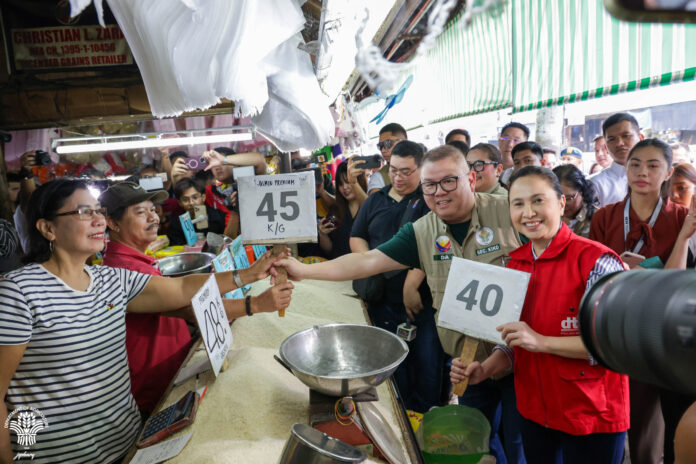Agriculture stakeholders have welcomed the Department of Agriculture’s (DA) recommendation for a phased increase in rice import tariffs, with groups urging swift legislative action to address the sharp decline in palay prices and protect local farmers.
The Samahang Industriya ng Agrikultura (SINAG) blamed Executive Order (EO) 62 for the recent drop in farmgate palay prices to as low as ₱8 to ₱10 per kilogram, citing an oversupply of imported rice. SINAG executive director Jayson Cainglet urged the President to call on Congress to immediately restore original tariff levels, noting that an EO modifying tariffs can’t be issued while Congress is in session.
Cainglet pointed out that 2.6 million metric tons of imported rice have entered the country as of end-July, contributing to warehouse overstock and depressed prices. He called for a ₱60 billion increase in the National Food Authority’s (NFA) palay procurement budget, the establishment of a ₱18–₱23/kg floor price, and a temporary ₱6/kg subsidy pending legislation.
The Federation of Free Farmers (FFF) also welcomed the DA shift, but said the agency should have acted earlier. FFF national manager Raul Montemayor suggested invoking the Safeguard Measures Act to impose provisional duties on rice imports, a faster alternative to EO issuance. The FFF warned that relying on another EO or import bans risks delays or WTO rule violations.
Montemayor emphasized that higher tariffs won’t necessarily raise retail prices if the government reins in profiteering, noting that trading margins had widened significantly despite lower global prices.
Danilo Fausto, president of the Philippine Chamber of Agriculture and Food Inc. (PCAFI), representing 48 agricultural subsectors, also voiced full support for the DA’s tariff proposal.
As of August 2, DA monitoring showed local well-milled rice in NCR markets priced at ₱37–₱52/kg, while imported regular-milled rice ranged from ₱33–₱45/kg—highlighting continued volatility amid calls for stronger policy interventions.







